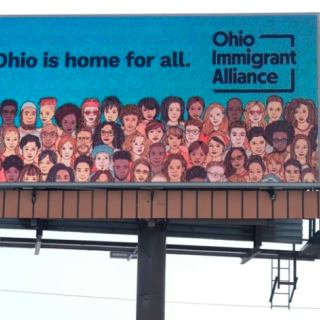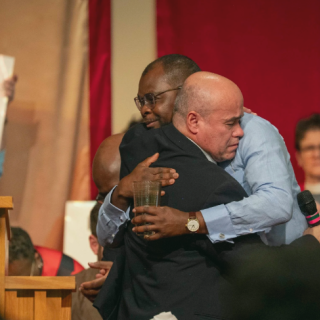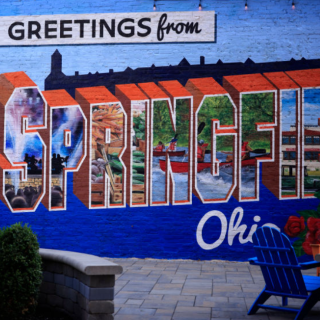Advertisement
Amid the smell of donated bread inside the Clintonville-Beechwold Community Resource Center, I sought advice from fellow canvassers, working on the Columbus Community Bill of Rights, which aims to bring democracy to the decision of whether toxic fracking waste is allowed to be put into areas where it can negatively affect the health of Columbus residents.
"You got to let your ego go out the window," said Debbie Crawford, who got 40 signatures in about an hour at the entrance of Whetstone Library, while the rest of us went door-to-door on a nearby street.
I showed up late, and got zero signatures in about 30 minutes. I kept imagining that the houses would explode if I mustered something other than a timid knock.
"You're going to get some rejection. You just got to go with it,” said Crawford, adding that the ballot initiative is not necessarily calling for a ban on fracking.
“ There are people involved in this who want that, but that's not the broadest appeal. This is about people’s right to say whether or not drilling or injection fluid waste is put into our community. Most people, even many conservatives, support local control,” Crawford said.
The Ohio General Assembly took away local control over the oil and gas industry in 1984, giving it to the Ohio Department of Natural Resources, said Carolyn Harding who has been working on this issue for more than two years.
“We shouldn’t just say ‘let’s do our best,’” said Tekla Lewin.
The ballot initiative is doable, because the issues at hand are a no-brainer, said Greg Pace.
“With some issues it might be a little more difficult to convince people, but not with this one. My canvassing line is just to tell them they've deregulated radioactive waste so they can dump it everywhere in Ohio. They've got it slated for Columbus, when they're supposed to be putting it out west in low-level radioactive facilities. That pretty much convinces everybody.”
Some organizers, such as Crawford and Lewin, prefer areas of high foot traffic over going door-to-door. Others, such as Harding and Pace, prefer and see the need to do both.
“Everybody's got their comfort levels," said Pace. "I go to Linden where a third of the houses are boarded up. It seems like in a neighborhood like that, people who are voters pretty much sign the petition. They don't like getting dumped on. I canvassed south of the Integrity Drive Drum Dump, where they're trying to put fracking waste and told people what they're doing and everybody just goes, 'Here they go again. They're dumping on us again.' So, we are pretty well accepted when we go knock on people's doors."
Pace said if the community bill of rights doesn't get on the ballot or if it doesn't get passed, he and other activists will keep trying.
"In Youngstown, they've done it four times, and it hasn't passed. Every time, they have to start over. Over time, you get more people who understand more and more about this.”
Pace and other organizers for the community bill of rights are working with Community Environmental Legal Defense Fund (CELDF).



